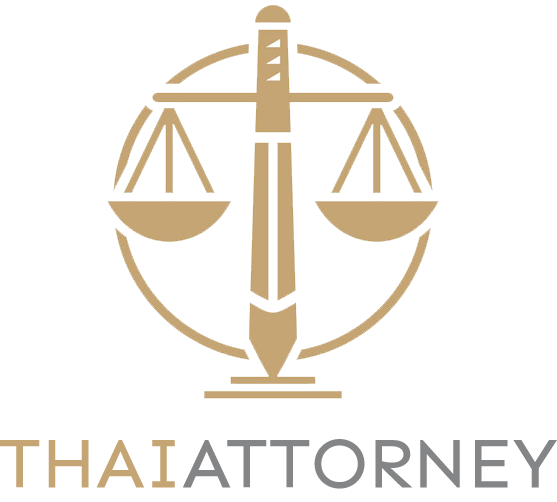Marital Property in Thailand. Understanding marital property in Thailand is essential for couples, advisers and anyone with cross-border family or asset planning. Thai law divides spousal property into Sin Suan Tua (personal/separate property) and Sin Somros (marital property). How those categories are defined, proven and divided — especially for mixed-nationality couples or where land and businesses are involved — determines who keeps what on divorce, death or creditor claims. This article explains the legal rules, practical evidence and planning steps that actually matter.
Legal framework: the Civil and Commercial Code (the basics)
Thailand’s Civil and Commercial Code (CCC) sets out the statutory rules. The core presumptions are simple:
-
Sin Somros (marital property) is the default: property acquired during the marriage is treated as marital unless it falls into the separate-property categories.
-
Sin Suan Tua (separate/personal property) includes property owned before marriage, gifts or inheritances expressly made to one spouse, items for personal use (clothes, tools of trade), and property that replaces separate property (e.g., sale proceeds reinvested). The Code also explains how fruits (income) of separate property are treated.
These statutory divisions are the starting point for any dispute — but the outcome often depends on documentary proof and the parties’ conduct during the marriage.
What counts as Sin Suan Tua (separate property) in practice
Statutory categories are clear but practically narrow. Typical examples that courts accept as separate:
-
Land, bank accounts, shares or other assets owned before marriage, with clear title and documentary evidence.
-
Gifts or inheritances received in writing and expressly given to one spouse during marriage.
-
Personal effects and tools of trade used in a spouse’s profession.
-
Replacement assets: where separate property is sold and the proceeds are traceably converted into another asset, courts frequently treat the replacement as still separate — but you must be able to show an unbroken chain of title or transfers.
Practical rule: documentary traceability (original titles, dated bank transfers, will/gift instruments) is decisive. Absent clean records, Thai courts will often presume the property is Sin Somros.
Sin Somros (marital property): what is included and the default division
Sin Somros generally includes:
-
Earnings, savings and property acquired during the marriage (salary, business profits, jointly purchased property).
-
Property acquired by will or gift that the donor declares to be marital.
-
Fruits and proceeds from separate property may be treated as marital depending on the facts.
On divorce the Code provides an equal-division starting point: courts generally split Sin Somros 50/50 unless the spouses agree otherwise or there are statutory reasons to depart from equality (for example, proven contributions or agreements). The presumption of equal sharing is strong in contested proceedings.
Prenuptial agreements — formalities that matter (and the pitfalls)
Thai law recognises prenuptial agreements, but the formalities are strict:
-
A prenup must be executed before marriage and recorded at the time of marriage registration at the district office (amphur). If it is not attached to the marriage record when marriage is registered, the prenup is void.
Practical implications:
-
Draft the prenup in Thai or produce an authoritative Thai translation; have it signed before the marriage registration and bring two witnesses.
-
Full and frank disclosure improves enforceability; courts scrutinize one-sided arrangements or situations suggesting coercion.
-
If you have foreign assets, consider parallel foreign wills or agreements so cross-jurisdictional recognition is clearer.
Tracing, commingling and reimbursement claims
The line between personal and marital property is often litigated because spouses commingle funds or reinvest proceeds. Key practical principles:
-
Tracing: if you can trace an asset directly to separate property (sale proceeds with an unbroken bank transfer record), courts are likely to keep it Sin Suan Tua. Weak or missing records make tracing hard.
-
Commingling: transferring separate funds into joint accounts, or using separate funds to buy assets in both names without documentation, risks that the asset will be treated as Sin Somros. Keep separate accounts and contemporaneous documents if you want to preserve separate status.
-
Reimbursement claims: where marital funds were used to enhance separate property (for example, major renovations on separate land), the contributing spouse can claim reimbursement or adjustment in division — but they must prove amounts and timing. Receipts, bank statements and expert valuations help.
Special issues: land, foreigners and bankability
Land raises special considerations:
-
Foreigners generally cannot own freehold land in Thailand. In mixed marriages, the Thai spouse’s land purchased during marriage may be vulnerable to claims unless it can be demonstrated as separate property. Government practice and Land Department procedures sometimes treat purchased land as marital unless evidence shows separate funds were used and the asset was declared as Sin Suan Tua at purchase.
Practical advice for cross-border couples:
-
Keep clear foreign-exchange remittance proofs (FET) if funds were transferred from overseas for land purchase.
-
Register a prenup and keep title paperwork and transfer receipts to show the land’s funding source.
Debt, creditors and third-party protection
Marital property can be exposed to creditor claims for obligations incurred during marriage. But third parties who deal in good faith (bona fide purchasers, registered mortgagees) are often protected by registration and public records. For example, a registered mortgage or buyer for value may take priority over a spouse’s private claim. That’s why registration, title searches and clear contracts are vital in property transactions.
Litigation reality: evidence, courts and settlements
In contested cases Thai courts focus on documentary evidence (title deeds, bank records, gift instruments) and on the timing and source of funds. Courts are pragmatic: if parties can agree on a settlement, the court will usually record it and avoid protracted litigation. For complex asset pools (companies, offshore holdings), expect forensic accounting, valuation experts and longer proceedings.
Practical planning checklist (what to do now)
-
Execute and register a prenup before marriage if you want tailored property rules; attach it to the marriage record at the amphur.
-
Keep originals and bank records: title deeds, remittance advices, inheritance/gift letters, transaction receipts and project valuations. Those items are your strongest proof.
-
Avoid commingling separate assets with joint funds where possible; use clear accounting and labelled transfers if mixing is unavoidable.
-
For foreign buyers: keep FET and bank trails for any remitted funds; consider legal structures (condo vs lease vs company) with a Thai lawyer.
-
Use specialist advisors early for businesses or complex holdings — valuation and tax advice dramatically reduce surprises at settlement.
Conclusion
Thailand’s marital-property regime gives parties useful predictability: marital property is the default; separate property is limited but protectable with clear, contemporaneous evidence and properly executed prenups. For foreigners, land and cross-border assets introduce additional documentary and regulatory steps. The best practical protection is to plan ahead: register any prenup, keep meticulous records of asset provenance and consult Thai family-law counsel early if significant assets, businesses or foreign remittances are involved.

